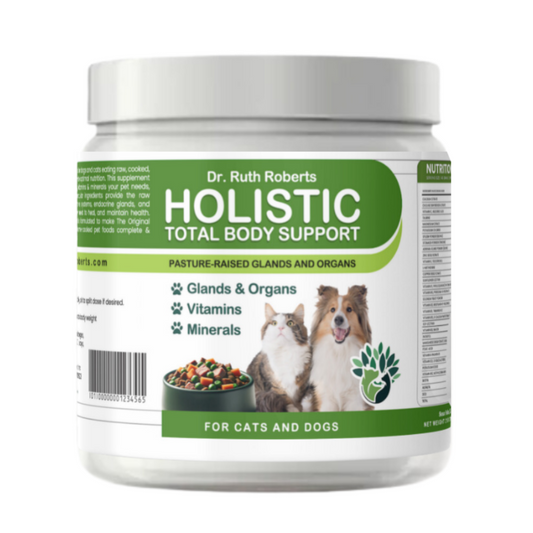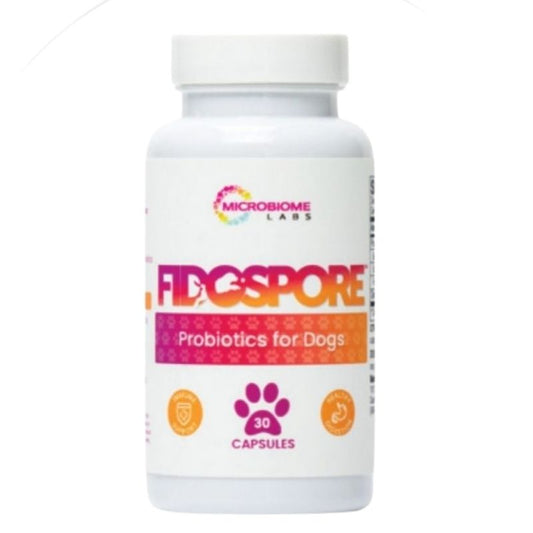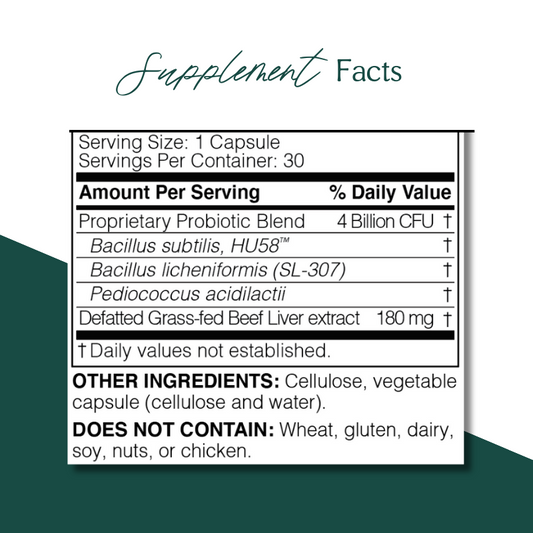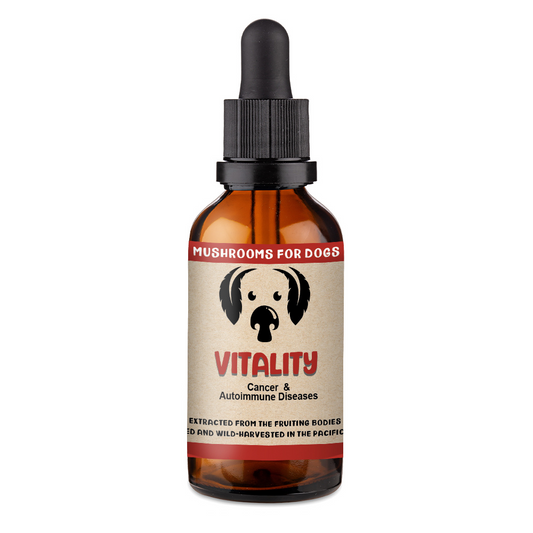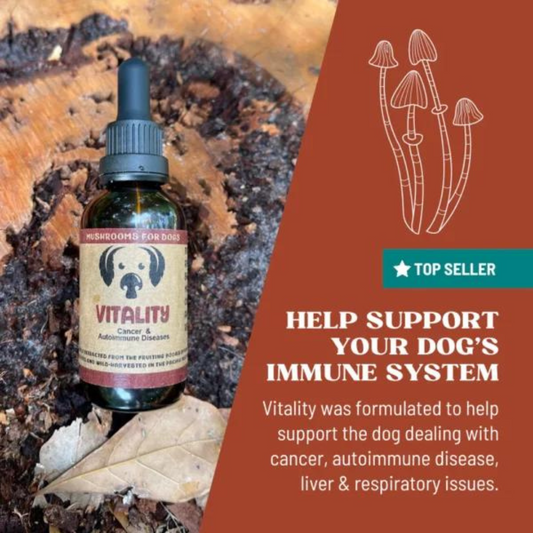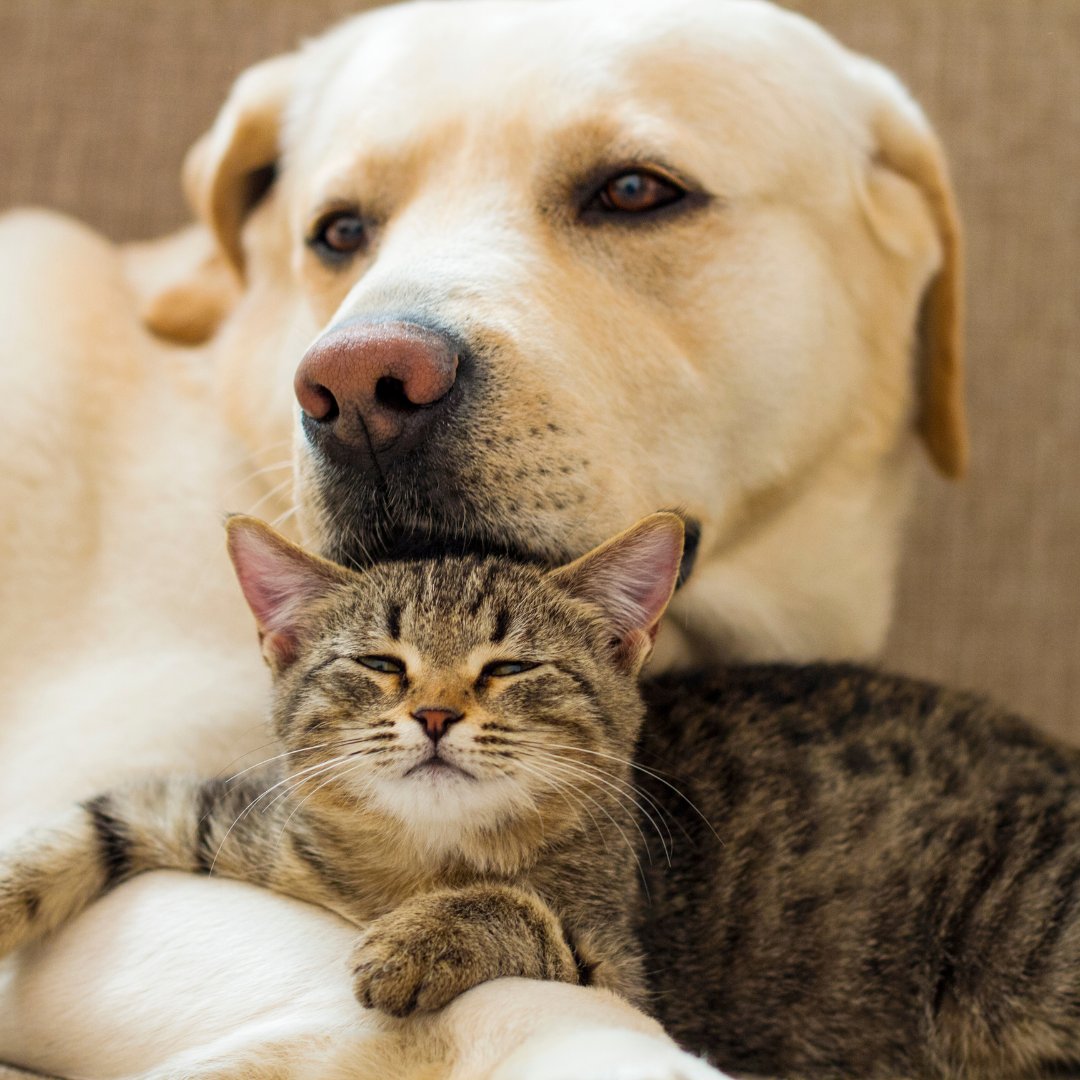
Cancer Support Protocol For Pet
The most dreaded diagnosis pet owners face is Cancer. We are facing an epidemic of cancer in our Dogs & Cats, and sadly conventional vets often don't mention natural ways to help.
Dr. Ruth Roberts has put together this support protocol that she uses for her consulting clients and even for her own pet. She's been suggesting these supplements for years to help pets stay healthy and keep their immune system strong while dealing with cancer.
-
Holistic Total Body Support for Cats and Dogs - Glandular Supplements
(42)Regular price $64.00 USDRegular priceUnit price perHolistic Total Body Support for Cats & Dogs is a premium pet multivitamins designed to support your pet's overall health and wellness. This powerful formula is crafted with the finest ingredients, including glandular tissue extracts, digestive enzymes, and immune-boosting nutrients, making it the perfect way to keep your pet feeling happy, healthy, and full of energy. This all-natural multivitamin used glandular extracts contains nutrients from healthy beef and pork organs and glands sour...
-
Fidospore by MicroBiome Labs - Digestive Probiotic for Pets
(42)Regular price $43.99 USDRegular priceUnit price perFidospore by Microlabs is a premium digestive probiotic designed to address a common issue among pets: digestive problem. This powerful formula is packed with beneficial probiotics that work to restore the balance of healthy gut bacteria in your pet’s digestive system. Fidospore is easy to administer and safe for all breeds of dogs and cats. Simply sprinkle the recommended amount onto your pet’s food, and let the probiotics work their magic. With regular use, Fidospore can help to improve you...
-
Vitality - Mushroom Drops for Dog with Adaptogen Tincture
(42)Regular price $49.49 USDRegular priceUnit price per$54.99 USDSale price $49.49 USDIf you're looking for a natural way to improve your furry friend's health, look no further than Vitality - Mushroom Drops for Dogs with Adaptogen Tincture. A natural supplement is formulated to boost your dog's immune system, promote vitality, and support overall health. The Mushroom Drops for Dogs with Adaptogen Tincture is packed with powerful, immune-boosting ingredients that are great for your dog's health. Here are a few key components: Turkey Tail is a powerful tool in the fight agains...
Sale -
Artemisia 100 caps
(42)Regular price $36.79 USDRegular priceUnit price perShop Artemesia 100 caps from Dr. Ruth's holistic wellness store today to help your pet be happy and healthy for many years to come. A concentrated extract of the leaves of Sweet Wormwood (Artemisia annua), an herb from the Far East, used for centuries in China. Artemisia annua is an herb traditionally used in Chinese medicine to treat fever, inflammation, and malaria, and other parasites. More recently, one of the active compounds, arteminsen, has been found to be effective in killing certa...
-
Milk Thistle 150 mg 200 caps | Dr. Ruth Roberts
(42)Regular price $33.99 USDRegular priceUnit price perSupports Liver Function* Jarrow Formulas® Milk Thistle ( Silybum marianum) 30:1 concentrate is standardized to contain 80% total Milk Thistle seed flavonoids, including the important Silymarin fractions isosilybinins A and B, silybinins A and B, silychristinand silydianin. This particular group of flavonoids, collectively known as Silymarin, supports liver function by raising protective glutathione levels. No wheat, no gluten, no soybeans, no dairy, no egg, no fish/shellfish, no peanuts/tree...
-
Omega Pawz - Liquid Fish Oil Supplement for Pet’s Energy Booster
(42)Regular price $37.82 USDRegular priceUnit price perBoost your pet's energy and overall health with Omega Pawz by Dr.Ruth Roberts. Our premium fish oil supplement is packed with omega-3 fatty acids, EPA, and DHA to promote healthy skin, coat, and joint function, improved memory, cardiovascular health and more! Our liquid formula is easy to administer - simply add a few drops to your pet's food or water each day. Unlike many fish oil supplements, Omega Pawz is made with pure, high-quality fish oil and is free from artificial additives and prese...
-
C60 Purple Power - Antioxidant with Organic Avocado Oil (59ml)
(42)Regular price $60.00 USDRegular priceUnit price perGive your pet the gift of optimal health with C60 Purple Power antioxidant! This oil is made with 100% organic cold-pressed avocado oil, ensuring that your pet gets only the best quality ingredients. Our supplement is rich in antioxidants, which help to protect your pet's body from harmful free radicals, reducing the risk of age-related diseases and promoting longevity. C60 Purple Power organic avocado oil is perfect for pets of all ages and sizes, and is especially beneficial for pets with j...
-
C60 Purple Power - Antioxidant with Organic Avocado Oil (118 ml)
(42)Regular price $117.00 USDRegular priceUnit price perGive your pet the gift of optimal health with C60 Purple Power antioxidant! This oil is made with 100% organic cold-pressed avocado oil, ensuring that your pet gets only the best quality ingredients. Our supplement is rich in antioxidants, which help to protect your pet's body from harmful free radicals, reducing the risk of age-related diseases and promoting longevity. C60 Purple Power organic avocado oil is perfect for pets of all ages and sizes, and is especially beneficial for pets with j...
Cancer In Cats and Dogs
Cancer in pets, similar to cancer in humans, refers to the abnormal and uncontrolled growth of cells in the body. These cells can form tumors, which may be benign (non-cancerous) or malignant (cancerous). Cancer can affect various tissues and organs in a pet's body, leading to a range of health issues.
Just like in humans, the exact cause of cancer in pets can be complex and multifaceted. It can arise from a combination of genetic predisposition, environmental factors, exposure to carcinogens, and sometimes, it may occur spontaneously.
Common Causes of Cancer in Cats and Dogs
🐶 Genetics
Certain breeds have a higher predisposition to specific types of cancer. Genetic factors can play a significant role in the development of tumors.
🐶 Environmental Factors
Exposure to carcinogens, such as tobacco smoke, certain chemicals, and environmental pollutants, can increase the risk of cancer in pets.
🐶 Age
As pets grow older, their risk of developing cancer increases. This is especially true for dogs, where age is a significant factor.
🐶 Diet and Nutrition
Poor diet and inadequate nutrition may contribute to the development of certain cancers. Conversely, a balanced and nutritious diet can help support a pet's overall health.
🐶 Exposure to Ultraviolet (UV) Light
Cats that spend a lot of time outdoors, especially with light-colored fur, have an increased risk of skin cancer due to UV exposure.
Common Symptoms of Cancer in Cats and Dogs
🐱 Unusual Lumps or Bumps
Palpable masses or growths that appear on the body can be an early sign of cancer.
🐱 Changes in Appetite and Weight Loss
A sudden loss of appetite or unexplained weight loss can indicate an underlying health issue, including cancer.
🐱 Persistent Lethargy
If a normally active pet becomes unusually lethargic and lacks energy, it may be a cause for concern.
🐱 Difficulty Breathing
Respiratory problems, including persistent coughing or labored breathing, may be indicative of certain types of cancer.
Changes in Behavior
Altered behavior, including irritability, aggression, or withdrawal, can be a response to pain or discomfort associated with cancer.
Common Types of Cancer in Pets
🐶 Lymphoma: A cancer of the lymphatic system, which is part of the immune system.
🐶 Mammary Gland Tumors: These can occur in both male and female pets, but are more common in female dogs.
🐶 Skin Tumors: Including both benign growths like lipomas and malignant tumors like melanomas.
🐶 Osteosarcoma: A type of bone cancer that is more prevalent in larger dog breeds.
🐶 Hemangiosarcoma: A cancer of the blood vessels that can affect organs like the spleen, heart, or liver.
🐶 Mast Cell Tumors: These tumors arise from a type of immune cell called mast cells and can occur in the skin or internal organs.
Relief and Support for Pets with Cancer
✅ Consult with a Veterinarian
Seek professional guidance from a veterinarian experienced in oncology. They can provide a proper diagnosis and recommend a suitable treatment plan.
✅ Pain Management
Adequate pain relief is crucial for pets with cancer. Your veterinarian can prescribe medications or recommend alternative therapies to help manage pain.
✅ Nutrition and Diet
Provide a balanced, nutrient-rich diet tailored to your pet's specific needs. Proper nutrition supports their overall health and can help strengthen their immune system.
✅ Holistic Approaches
Complementary therapies like acupuncture, massage, and herbal supplements may offer additional relief and support for pets undergoing cancer treatment.
✅ Emotional Support
Show your pet love, attention, and comfort during this challenging time. Spending quality time together can have a positive impact on their emotional well-being.
✅ Regular Veterinary Check-ups
Schedule regular follow-up appointments with your veterinarian to monitor your pet's progress and make any necessary adjustments to their treatment plan.

